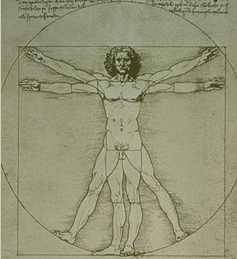
Mentalities

What is a mentality? A mentality is the group of shared beliefs, assumptions, metaphors and symbols that constitute how a group of people look at the world. It includes culture, religion, social behavior, as well as views about life and death. It is the most basic framework or context in which we make sense of experience. Sometimes we are aware of our mentality; many times we are not. A mentality is usually comprised of the unarticulated assumptions or categories that help us interpret the events of our daily lives and our place in the universe.
Remember how different mentalities were illustrated in the movie from class (The God's Must Be Crazy). The African tribe had no private ownership, no knowledge of the industrialized world, no sense of the division of time into hours, days, weeks, etc.. Remember how oblivious the native was that he had done something wrong when he killed that goat, something completely normal and ethical in his own way of life? He had no concept of our modern legal system and the most basic element of western liberty: private property. Recall the impact that a foreign object (a coke bottle) made when it invaded and disturbed their lives. The utter misunderstanding between the native and his westernized country men was the result of them both operating from within a different mentality. Now that you are reminded of what exactly a mentality is, let's look at the mentality of the British.
The British Mentality
Remember that during the age of 19th century imperialism, many European countries were trying to grab up as much land in Africa as they could (see section 4 of chapter 4 in your textbook). There is no doubt that the most powerful motivation for this imperialism was the greed for wealth; the developing capitalism of Europe (especially in England) demanded more raw materials and markets than the traditional European trade patterns could handle. Forays into new territory was a necessity. However, despite this economic motivation, many Europeans --particularly the English-- genuinely believed that imperialism could be defended because it created a better life for colonized people.
During the 19th century, Britain made amazing
advances in the areas of science, technology, and manufacturing. These
things brought a very high standard of living to many (but by no means all)
citizens of England. Thus by imposing the European way of life on natives,
the colonizers were getting the raw materials and markets they needed and the
natives were being introduced to the wonderful lifestyle of western
Europe. Everyone gained something. This concept of 'good will'
imperialism was based on the assumption that European culture was superior and
everyone in the world would love to adopt it for themselves. But
indigenous people rarely felt like this. They regretted the loss of tribal
lands and the imposition of a foreign culture.
British colonizers with their 'cultured' natives
in India
Technology, Culture, and Mentality
As mentioned above, one sign of British superiority was their advanced technology. The industrial revolution had proven the effectiveness of this. However, the technological innovations that drove the British economy were also applied to its military. In the late 19th century, two English gentlemen put their ideas together and developed the Martini Henry Rifle. This was a repeating gun with a rifled barrel, and could fire about two dozen rounds per minute. It also made an incredible amount of smoke when fired. This gun had a long range but, as with all guns, required a good clear view to be aimed accurately. Thus the British had the advantage when they were at shooting range and vision was clear. The gun also had another defect: as its barrel grew hotter from shooting, the gun tended to jam more often. So, it was more reliable at the beginning of a battle.

The Martini Henry Rifle
Like most of Europe, the British mentality was grounded in the Judeo-Christian tradition. One way this affected them was in their attitudes toward the body after death. Because God took on a human body in Christ, the body is something sacred, a temple. When a person dies, the body is to be treated with respect. It is cared for, prepared, and then buried in a formal ceremony to remember the deceased. This is why cremation, or anything else that physically harmed a corpse, was considered a pagan ritual for so long in the western world.
So to sum up, many British felt they were doing a favor for colonized people by bringing a better way of life to them--even if the people at first did not submit to them. They had a feeling of superiority because of the advances of science and technology. Many were certain that their repeating rifles would certainly give them a victory over primitive weapons being used by less developed people. And their view of death and the body was shaped by the Judeo-Christian world view. Use this mentality as a clue to understanding the effect of the Battle of Isandlwana on the British.